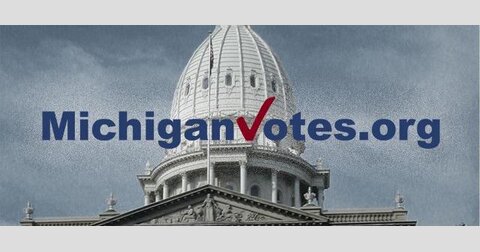Poll Results Could Be Positive Indicator For Right-to-Work Advocates
Michigan State University poll finds only 41 percent think right-to-work law will hurt Michigan
According to a new poll, 59 percent of Michigan adults believe the new right-to-work law will either help Michigan's economy or have no impact on it.
But the survey wasn't interpreted like that when the press release for Michigan State University’s State of the State Survey (SOSS) was released Thursday, the same day that state's right-to-work law officially took effect. Instead, the theme was that the right-to-work law "sharply divided" the state.
The survey asked respondents to speculate whether the new law would hurt or help the economy. Roughly two out of five, 42.7 percent, of those surveyed said they believed the new law would help the economy. Nearly one in six, 16.3 percent, said they thought it would have no effect. Another 41 percent, said it would hurt.
"This is actually very good news for supporters of right-to-work," said pollster Steve Mitchell, of East Lansing-based Mitchell Research, which was not involved with the survey. "This was a poll of 'adults.' A survey of adults is not the same as a survey of 'likely voters.' Generally, likely voters are better informed. Yet, even this poll of adults, had nearly 60 percent saying they don't see right-to-work as having a negative effect."
However, when the survey was released, the headine read: "Michigan Sharply Divided Over Right to Work." That was the same message repeated in multiple media stories.
MSU Professor and SOSS Director Charles Ballard said the survey focused on those who thought the new law would either help or hurt the economy and he was quoted in the press release as saying the numbers represented "a statistical dead heat."
"Adults" were surveyed instead of "likely voters" because the poll wasn't done close to an election, he said.
In the press release, Ballard highlighted the intensity of those who thought right-to-work would hurt the economy.
"Notably, those who said the new laws would 'hurt a lot' (22.5 percent) outnumbered those who said it would 'help a lot' (17.2 percent)," Ballard said.
Respondents were not asked whether they supported or opposed the new law, he said.
"My guess is the vast majority of the people who said it would help would be in favor and a majority of the people who said it would hurt would be opposed," Ballard said. "It costs about $1,500 to do a question. So we have to be careful about how many questions we put in."
Overall, the survey included questions on several topics in addition to right-to-work.
Under the law, requiring an employee to pay union dues or fees as a condition of employment is prohibited.
Other statistical results from the survey included:
- Of respondents who identified themselves as Republicans, 74.2 percent said the new law would help the state’s economy. Only 24.8 percent of Democrats said right-to-work would help. Among independents, 42.3 percent said the right-to-work law would help.
- Nearly 50 percent of the men responding said right-to-work laws would help Michigan. Fewer than 40 percent of the women had the same view. Whites favored right-to-work concepts more than blacks, 45.4 percent to 24.9 percent, respectively.
- Some 58 percent of those who identify themselves as conservatives replied that right-to-work would help. Among liberals, 60 percent indicated it would hurt.
- Among respondents in the region including Livingston, Macomb, Monroe, Oakland, St. Clair, Washtenaw and Wayne counties, 38.2 percent said the law would help the economy. In southwestern Michigan, 52.6 percent said the law would help.
Conducted between Jan. 14 and March 4, the survey of 1,013 Michigan adults had roughly a 3 percent margin of error. MSU’s Institute for Public Policy and Social Research is housed within MSU’s College of Social Science.
Michigan Capitol Confidential is the news source produced by the Mackinac Center for Public Policy. Michigan Capitol Confidential reports with a free-market news perspective.


 Right-to-work no longer rules in private sector
Right-to-work no longer rules in private sector
 Hydra-Lock employees vote to decertify their union
Hydra-Lock employees vote to decertify their union
 Auto workers can still resign from UAW and work during strike
Auto workers can still resign from UAW and work during strike
